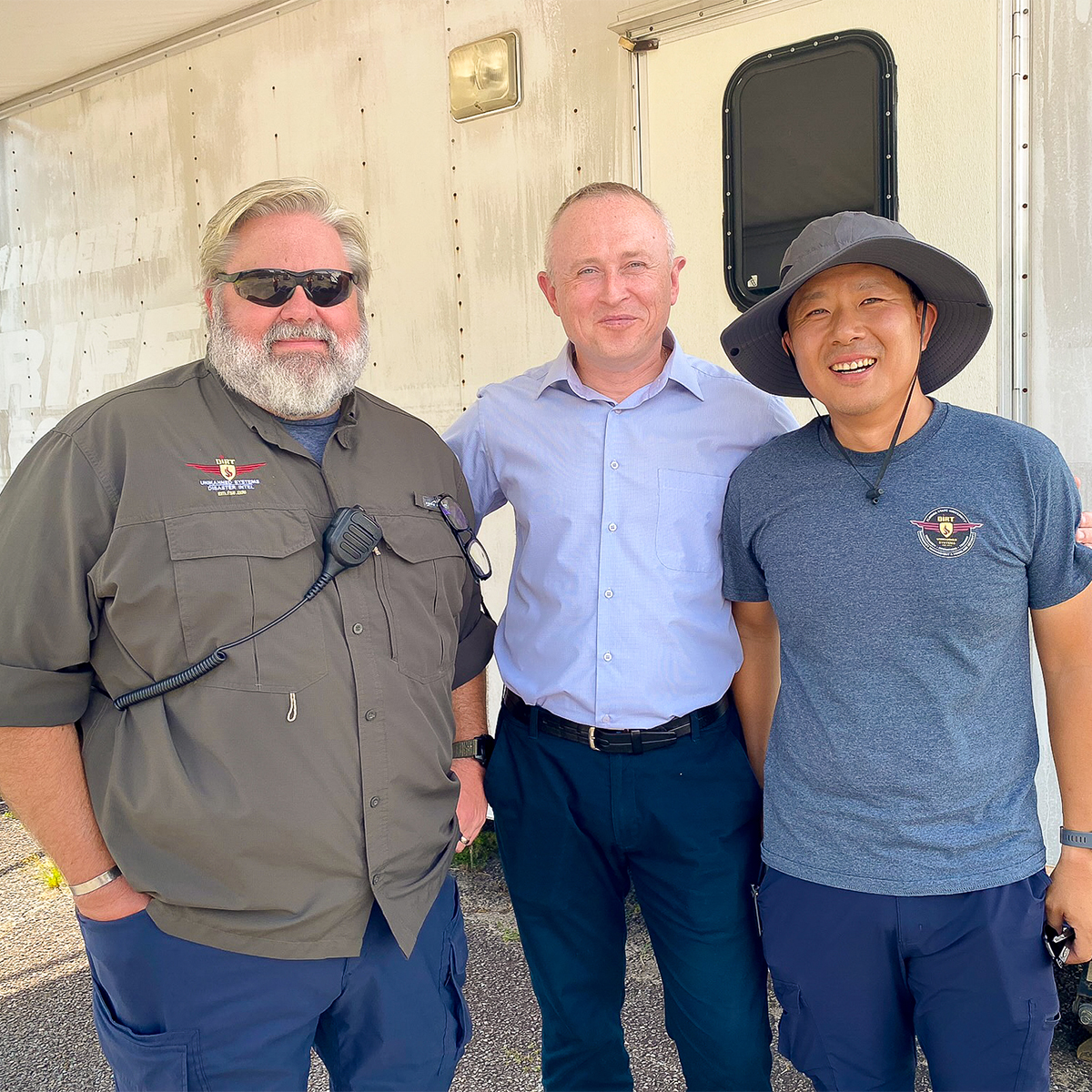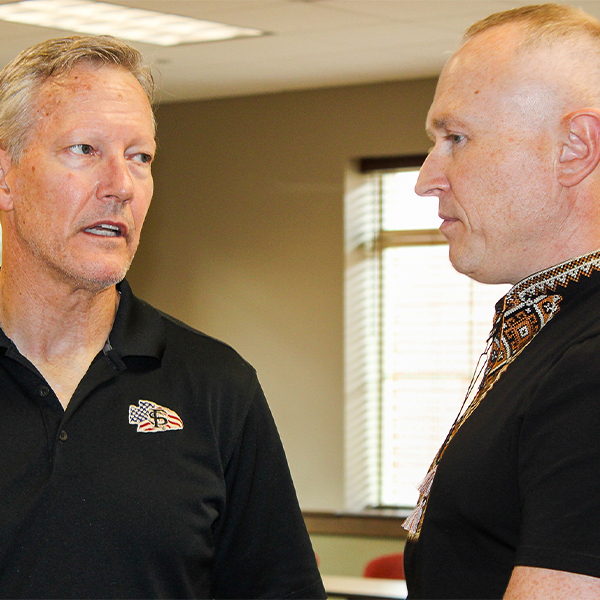BridgeUSA Ukrainian Fellow Spotlight: Dr. Andrii Balendr

By Larissa Martins, LSI Communications Assistant
Colonel Andrii Balendr has devoted the past 27 years serving in the Ukrainian military, continuously striving to enhance its capabilities in every way possible. With over two decades of experience as an English instructor, he plays a pivotal role in preparing Ukrainian forces for international collaboration. As the head of the Language Training and Testing Center at Bohdan Khmelnytskyi National Academy of the State Border Guard Service of Ukraine, Balendr is at the forefront of improving English proficiency among the military personnel of his institution and the agency.
Since Russia’s full-scale invasion in 2022, Ukraine has increasingly collaborated with the European Union on border protection and security, thus making English proficiency essential for effective military operations. Balendr’s dedication to his country and profession motivated him to apply for the BridgeUSA academic fellowship in hopes of transforming English language training within the military.
“I am part of the working group of the security and defense sector of Ukraine, which is now developing a road map for modernizing the foreign language training, both for the all the service and all the security of the Defense Center,” Balendr explained. “And we are looking for new methods, lots of activities, and new types of instructional design using Information Communication Technologies.”
Selected as one of the few BridgeUSA fellows, Balendr spent July immersed in the academic life and rich community at Florida State University. During this time, he gained valuable insights and best practices to inform his development of English curricula tailored to various categories of personnel. For example, he is currently designing a course for pilots that tackles the unique challenges of the ongoing war.
In pursuit of this objective, Balendr collaborated with Dr. Patrick Kennell, Director of FSU’s Center for Intensive English Studies, to develop content for his forthcoming textbook, which aims to address the growing need for effective communication between Ukrainian soldiers and NATO forces.
“I am gathering all this important material for the textbook, and I will be using the material during my classes, even this year in the next semester,” said Balendr. “I also am writing a report with recommendations on implementing the best practices of the American Higher education system into the Ukrainian educational processes of border guard institutions.”


In addition to language training, Balendr is focused on combating human trafficking and contraband of hazardous materials. He is also working to improve media literacy and mental resilience among the Ukrainian military as they continue to confront the Russian invasion.
During his fellowship, Balendr worked with Terry Coonan, Director of FSU’s Center for the Advancement of Human Rights and world-renowned expert on combatting human trafficking. Balendr identified practical applications for Ukrainian border guards based on Coonan’s extensive experience working with U.S. law enforcement agencies. He plans to maintain their connection and eventually host Coonan as an online guest speaker for his institution.
Through mentorships, workshops, campus tours and participation in scholarly and social events at FSU, Balendr’s professional goals have expanded beyond his initial interests. He is particularly inspired to explore technological innovations to aid Ukraine’s military.
“We visited Florida Drone Training Facility and examined the possibilities of using UAVs in emergency situations. The speed of data sharing is very impressive,” remarked Balendr. “We are going to get back and try to organize some kind of virtual exchange or virtual training courses for Ukrainian drone operators.”
Balendr was also amazed by how FSU’s Student Veterans Center supports veterans pursuing an education after service, as well as the flexible, accessible, and international opportunities offered to all students by the Career Center. Someday, he hopes to help establish similar services in Ukrainian institutions.
“With the war going on, we can’t think about diversity and accessibility as much as we would like to—we are surviving there,” stated Balendr. “We are making everything possible for our soldiers to have competent officers and to prepare our enlisted personnel and officers as soon as possible to keep fighting off Russians.”
Upon his return, Balendr intends to start immediately applying his newfound knowledge and experiences to strengthen various aspects of Ukraine’s military force, ensuring its personnel are equipped to continue defending Ukraine amidst current challenges and future demands.
